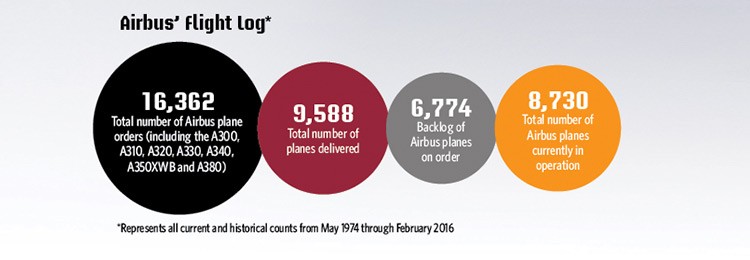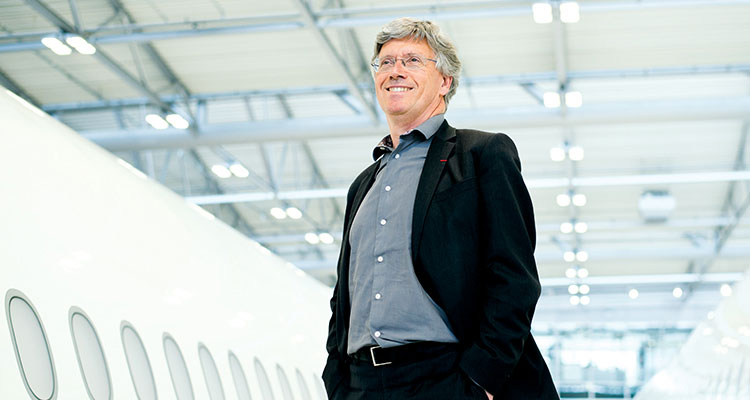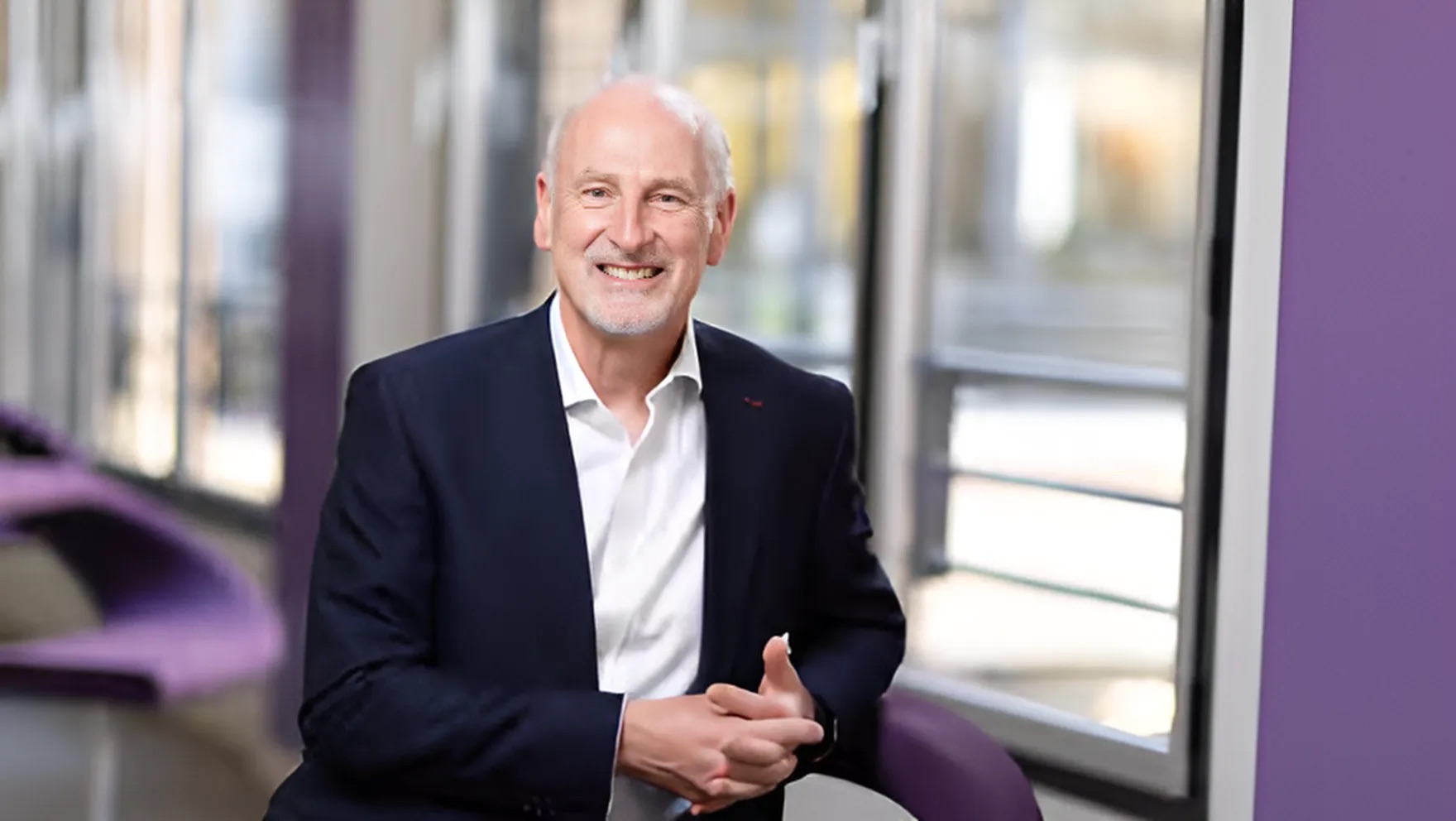Changing Course: Airbus’ Innovative New Culture
It is one of the biggest global rivalries in business: Airbus versus Boeing, duking it out to claim the title of world’s largest aircraft manufacturer. It has long been a close race. Last year, Toulouse, France-based Airbus outsold Chicago-based Boeing by hundreds of aircraft orders. But Airbus took second in terms of the number of planes actually delivered to customers, missing the top spot by 127 planes. It was not the first time. For 16 of the past 25 years, Airbus has trailed on deliveries.
But the $67 billion company is out to ramp up its production cycle, with executives identifying strategies to improve agility and drive a more innovative culture throughout the business. “Airbus has been innovating forever. It is part of our story as a company,” says Yann Barbaux, Airbus’ chief innovation officer (CIO). “We have been the challenger for many years, so it is necessary to be more innovative.”
For Mr. Barbaux, who was appointed CIO in 2013, that means identifying opportunities to encourage new ideas from all areas of the company, along with its customer base, its supply chain and the market at large. But an idea is worthless if it dies on the vine. So to ensure the best projects are identified and nurtured to fruition, Mr. Barbaux is also working to facilitate more rapid and systematic decision-making processes relative to innovation.
“Innovation is about agility and speed and creating new processes that move us in the right direction,” he says.

But change can be difficult and slow at a company with 55,000 employees and a legacy spanning nearly five decades—especially while operating in a highly regulated industry where every new idea must be vetted, tested and proven safe and effective. “It’s a challenge to find ways to be more agile while still bringing the same level of safety and quality to everything you do.”
To make it happen, Mr. Barbaux has relied on the full support of the executive team, including the company’s CEO, since taking his post. “Culture change goes much faster when all the executives say we need to work together to move in this new direction,” he says.
Outside Collaborators
One of the ways Mr. Barbaux aimed to revamp Airbus’ culture to better drive innovation was by creating completely new avenues for sourcing ideas. He discovered that most new ideas came from within the long-standing corporate structure, where independent teams adhered to established decision-making processes and did not always collaborate with outside experts to find different solutions. “I wanted to open Airbus up to the outside,” he says.
So Mr. Barbaux decided to bring more small companies into the Airbus supply chain as a way to add value to existing processes and designs. For example, Airbus is testing a film designed by a small Canadian manufacturer that uses nanocomposites to reflect laser light and protect pilots against laser strikes.
“It’s a challenge to find ways to be more agile while still bringing the same level of safety and quality to everything you do.”
It will take a couple of years to fully test whether the film can be used on Airbus aircrafts, but it is an example of how the company can find innovative solutions to real problems by working outside the traditional supply chain environment.
“We aren’t expecting these companies to bring major aircraft components to us,” Mr. Barbaux says. “But in domains outside our core competencies, these subject matter experts have good ideas that we can potentially integrate into our aircrafts.”
Bringing in these small companies introduces a more entrepreneurial thought process into the business, Mr. Barbaux says. And there is a nice bonus to finding an innovative solution this way: It is typically more cost-effective than working strictly in-house.
Accelerating Innovation
Part of Mr. Barbaux’s cultural transformation was opening up new opportunities for company leaders to work with entrepreneurs who take a more agile approach to product development. He also wanted to open up access to the latest technologies in the aerospace sector and beyond.
So Mr. Barbaux’s team launched Airbus BizLab, a global aerospace business accelerator where startups and Airbus “intrapreneurs” work together to speed the transformation of innovative ideas into functioning businesses. The first BizLab launched in France in March 2015, and eventually five startups from 150 applicants were selected to participate. Chosen companies include a Hong Kong organization developing a flexible business-class flatbed suite that could be transformed into a premium economy-class seat (see “BizLab’s Inaugural Class” for the full list of chosen startups).
BizLab provides each startup with six months of support that includes access to office and testing facilities, technology and other resources. They also get to work with Airbus experts from a number of different domains, including IT, legal, finance and marketing, and will be assigned a dedicated coach to help them throughout the six-month process.

At the end of the program, each team will participate in a “demo day” with Airbus decision-makers and customers to demonstrate its product and potentially win venture capital for its business. Airbus has since launched similar BizLab incubators in Germany and India.
“The labs create an environment where entrepreneurs can bring their ideas to life, while giving Airbus access to groundbreaking solutions,” Mr. Barbaux says. “It’s another way we can source ideas from the outside while bringing an entrepreneurship mindset to the Airbus culture.”
Getting Customers and Employees Into the Game
Mr. Barbaux’s team is also testing new ways to work directly with customers on co-innovation projects. An example is its recent partnership with European airline easyJet to study an enhanced fault prognosis tool that uses real-time information from the jet to troubleshoot technical faults and predict when an aircraft part is due to fail.
The tool would benefit airlines by further enabling engineering departments to plan for component replacements before issues arise, and to identify actions that could improve fleet performance and reduce cost, Mr. Barbaux says. “It’s an example of how Airbus is working jointly with customers on projects that add real value to both parties.”
Whenever Airbus is testing a new idea in-house, it invites customers to offer feedback, from the planning stages throughout iterative development steps, to ensure the company is channeling investments toward the best solutions to meet customer needs. “It’s a way for us to beta-test lots of ideas to understand how value is created for customers,” Mr. Barbaux says. “In this way, we can be more accurate in the products we ultimately develop.”
The final phase of his outside-in approach to innovation includes letting employees participate in the idea-generation process. Mr. Barbaux created a team of 140 leaders across the company to act as “innovation catalysts,” encouraging employees to share ideas and offer feedback on the company’s new IdeaSpace platform, an online peer-to-peer collaboration tool.
“It’s about creating a culture where everyone can contribute to what we do.”
“IdeaSpace is helping us create an open innovation culture in the company,” he says. Anyone can post an idea or suggestion, and rate other ideas. They can also connect with people who have similar passions to create teams in support of new projects. Currently 18,000 Airbus employees regularly use the platform.
“One of the most exciting elements of IdeaSpace is that it is a totally flat infrastructure,” Mr. Barbaux says. “Everyone who participates is equally important.” His team hosts regular competitions to vote for the best ideas on IdeaSpace, and their sponsors receive resources to develop them. Last year the company showcased 14 innovations that emerged from the IdeaSpace platform. They included using a 3-D printer to manufacture missing replacement parts on the factory floor, and an idea to replace nylon cable ties with paper ties to minimize removal time and cutting risks.
Both of these projects are on their way to becoming embedded in the core processes at Airbus. Mr. Barbaux notes that many nontechnical ideas also come through IdeaSpace, like changes to contracts, new services for customers and innovations in the way the company commercializes products. “Innovation isn’t limited to technology Share on X,” he says. “IdeaSpace is about introducing ideas that solve problems across the business.”
“This contributes to our culture change by transforming the mindset of the workforce,” he says. It encourages employees to take a design-thinking and business-thinking approach to their jobs, and provides them with a platform to share new solutions with the team. That makes them think more like entrepreneurs. “It’s pushing a more user-centric culture where everyone plays a role in innovation.”
All of these programs have had far-reaching effects at Airbus. While they tap the expertise of different groups, they all serve the same goal: to bring innovative solutions into the company while fostering a culture that embraces new ways of thinking and problem solving.
The ROI of these programs is difficult to measure, but Mr. Barbaux is optimistic they are having a positive effect. “We are already seeing a more competitive spirit across the company,” he says.
That is enabling Airbus to source innovative ideas faster and supporting a culture where everyone feels they can contribute to making Airbus a stronger, more agile company. “It’s never been about me developing new ideas,” he says. “It’s about creating a culture where everyone can contribute to what we do.”



